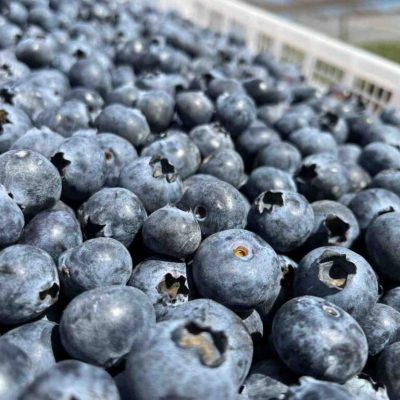Free schooling for kids while parents harvest blueberries
It’s blueberry season in Washington County.
Hundreds of families relocate to the area each year for the short harvest – many with children.
Brenna Kelly takes a look at the pop-up school in Harrington that handles the kids’ educational needs.
“The contributions of migrant workers during the wild blueberry harvest are really hard to understate,” said Ian Yaffe, the Mano en Mano/Hand in Hand executive director.
More than a thousand families drop everything in August and make the move to Maine. It’s the migrant lifestyle.
“So if you’re enjoying blueberries this summer and you didn’t rake them yourself or pick them or get them from a really small family farm, chances are it’s one of the families that’s here that’s come to Maine to help with that industry,” said Yaffe.
They’re from Nova Scotia, New Brunswick, Mexico, and several states including Maine – families, sometimes with children who have to miss a month of school.
So how do their kids keep up?
“I just remember [my sister] saying that [my brother] liked it because other than working, it was fun. That he could meet new friends from other places and he wouldn’t have to stay in the camps all day waiting for mom and dad to come back from work,” said Maria Paniagua, whose family moved to Maine for work. Her siblings attended Blueberry Harvest School.
The Blueberry Harvest School is more than just a daycare.
More than 300 students come here to dive into cultural learning – two-thirds of the staff speak Spanish and Micmac.
Milbridge organization Mano en Mano runs the federally funded education program.
“Basic eligibility for the program is that families are moving across school district lines in pursuit of qualifying work that is due to economic necessity and that their kids are entitled to a free and public education in the U.S.,” said Yaffe.
“You know, they felt comfortable. I think that if they wouldn’t have felt comfortable, they wouldn’t be here. Because a lot of kids don’t wanna come and they just don’t come. But here most of them love it. Most of them have fun and they learn,” said Paniagua, who’s now a teaching assistant at Blueberry Harvest School.
The blueberry harvest draws – by far – the most migrant workers to Maine. The money is good, but the harvest only lasts a few weeks and raking blueberries is no easy task.
“A lot of people don’t know how hard it is to get the money that you earn. So if you have worked in a seasonal job, you can see how difficult it is. So you can see how precious a job can be,” said Paniagua.
Yaffe says blueberry harvesting is a job that always needs to be filled.
It’s labor intensive work, but also drives Washington County’s economy for a few weeks every summer.
08/09/2016
WABI TV5







